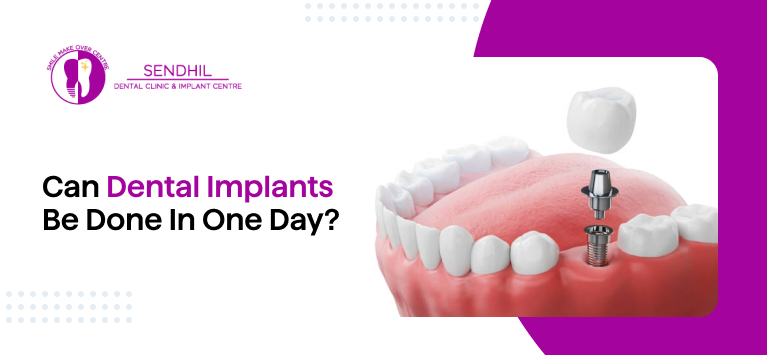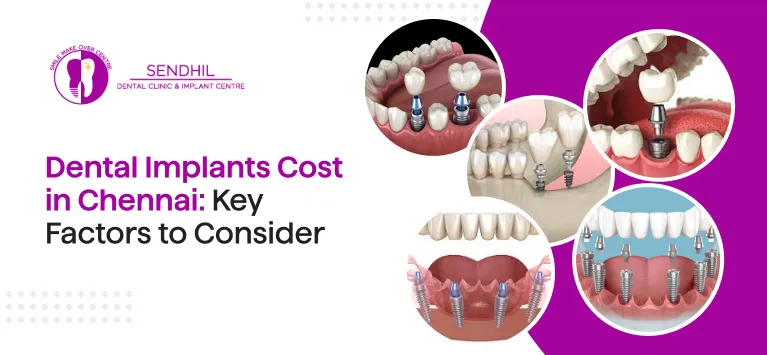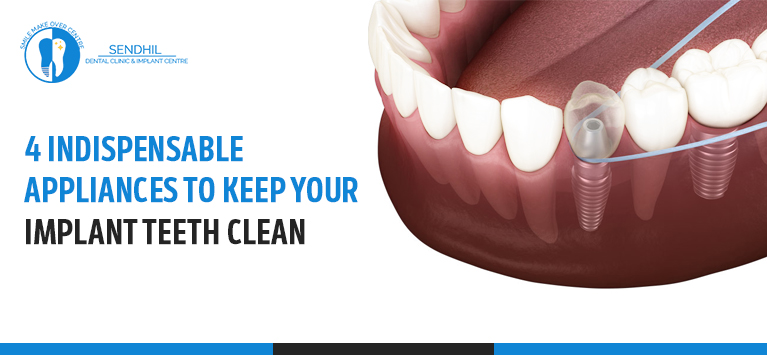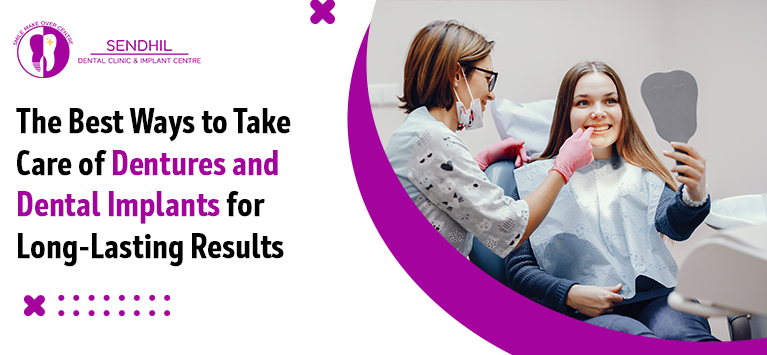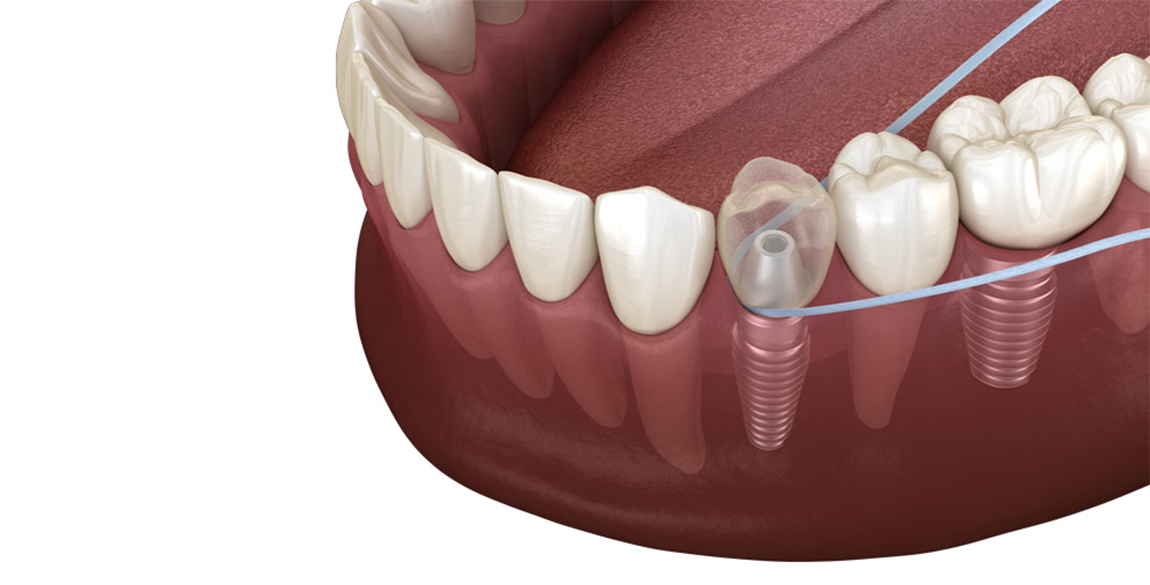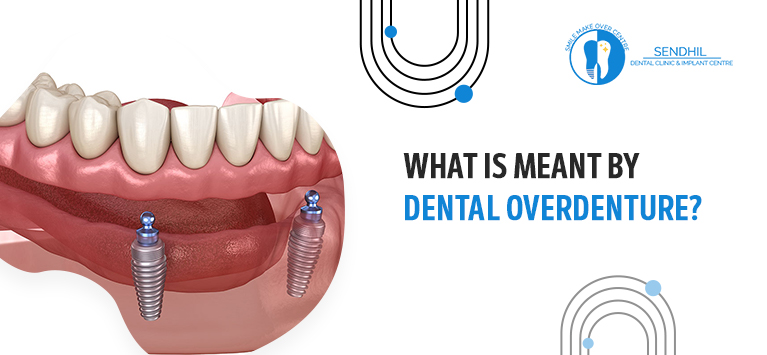
What is meant by dental overdenture?
Dentures have been in use to replace missing teeth for many years. Despite its ability to restore smile design and teeth functionalities to a certain extent, it becomes annoying over time. As the denture teeth simply rest on gums, they have nothing to do with the underlying bone. It causes the slow deterioration of bone tissues, making shrinkage in the jaw bone.
Hence the dentures do not have adequate support to stay in place. Due to this, denture wearers encounter loosening & slipping of the artificial teeth.
Overdentures (also known as Snap-in dentures) should be considered if you want your denture teeth to remain stable. To learn more about this, keep reading.
Table of Contents
What are Overdentures?
Overdentures are defined as fake teeth set anchored by implants inserted in the gums of a patient. Even though overdentures can be fixed in the upper & lower jaw, it is widely performed to stabilize dentures in the lower jaw. It is because the upper jaw has more suction to hold the dentures.
The implant-supported denture teeth are available as either permanent or removable restorations. You can get any type if your jaw has enough bone volume for implants.
What are the different types of implant overdentures available?
The implant overdentures are classified into 3 types as follows:
1) Implant-Supported Overdentures
An implant-retained, gum-supported overdenture is a removable prosthetic appliance and requires 4 to 6 implants inserted into the jaw bone. You can get it done in both the upper and lower jaws. It involves 2 surgical procedures – one to insert the implant post (made up of titanium) and the other to place a healing cap over the implants.
Once the custom-made denture teeth are fabricated, they are connected to the implants with an attachment. You can remove the fake teeth set whenever you want.
Depending on the type of attachment used, the implant-supported dentures have 3 sub-categories as follows:
- Ball-retained implant-supported overdentures – The removable prosthetic device requires inserting 2 to 4 implants in the jaw bone. Later a denture teeth set is attached to the implant with a ball-shaped abutment that locks the fake teeth securely. It is only suitable for replacing lost teeth in the lower arch but has a higher level of stability than conventional dentures.
- Bar-retained implant-supported overdentures – The bar retained implant dentures utilize a metal bar to attach the implant posts and a denture. The denture teeth clip onto the implants for wearing and clip off the implants for removal with this abutment. This device can be used to restore teeth in both the upper and lower arches.
- Mini Dental implants fixed overdenture – Similar to a ball-retained denture, it allows dentists to restore missing teeth in the lower jaw alone. A Mini dental implant commonly referred to as a MIDI has the same construction as a conventional implant but is smaller in diameter (3 mm). It ensures higher stability of the denture teeth, despite its modest size.
2) Overdenture partials
It is also possible to get implant-supported dentures to replace a few missing teeth in an arch.
Depending on the number of missing teeth, your dentist would surgically insert the required number of implant posts. Then a custom-made denture is attached with an abutment as we discussed in complete implant-retained dentures.
The removable device allows you to restore missing teeth in both upper and lower jaws. However, the denture teeth apply pressure over the neighboring natural teeth.
3) Fixed implant-supported overdenture
Dentists deliver non-removable implant-retained reconstruction solutions with denture teeth, regardless of complete or partial dentures required for a patient.
Similar to the removable implant-supported dentures, the fixed solutions also involve implanting the required number of titanium posts. After that, a denture set is affixed with an attachment device. The only difference is the attachment is made with screws that cannot be removed by the denture wearer. Only a dentist can remove the prosthetic device.
What are the advantages of overdentures over traditional dentures?
Even though overdentures seem quite expensive than traditional dentures, the latter mandates frequent repairs and procedures like reline, and rebase when they are loosened. In contrast, when a denture is attached to the implant posts inserted in the jaw bone, it inhibits bone resorption, which means there will be no loosening or slippage. Due to this, the combination of denture with implants offer various benefits as follows:
- Ensure the denture teeth are more secure
- Highly durable
- Minimally invasive procedure
- Promote new bone growth in the jaw.
- Prevent facial structure collapse
- Cleaning is easy
- Getting overdentures is an affordable solution in the long run
If you are interested in getting overdenture implants, schedule your appointment with specialists in our dental implant clinic.


